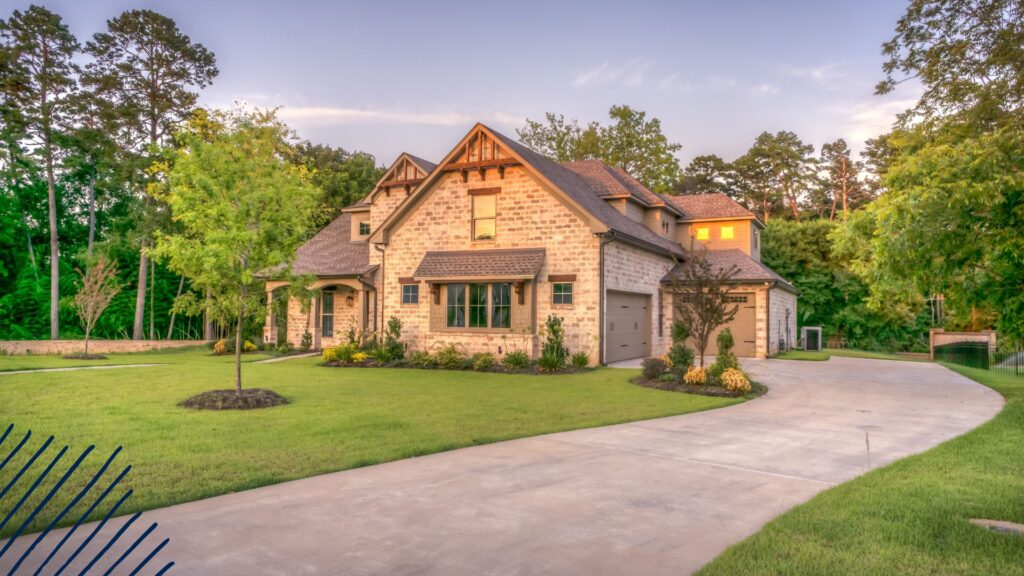
Most Common Defects Found In Eastern Tennessee Homes and Businesses
No home or business is perfect, but each has varying degrees of imperfection. In Eastern Tennessee, homeowners and business owners often encounter a variety of issues due to the region’s weather patterns and the age of the property. These types of defects are commonly found in new constructions as well as older properties. Some of the most frequent problems include roofing issues caused by intense weather, outdated electrical systems, and structural concerns that arise over time.
Structure:
Foundation Cracks and Settling: The region’s varying soil conditions can lead to foundation cracks and settling. This is a significant concern as it can affect the stability of the entire home.
Water Damage: Due to the frequent rains in the area, water damage is a prevalent issue. Poor grading and drainage can cause water to pool around the foundation, leading to cracks, leaks, and even flooding in basements or crawl spaces.
Roof Problems: The intense weather in Tennessee can lead to missing shingles, leaks, and sagging roof lines, which can cause further structural damage if not addressed promptly.
Sloping or Uneven Floors: This is often a sign of underlying foundation issues. Floors that slope or are uneven can indicate that the foundation is shifting or settling, which requires immediate attention.
Cracks in Walls and Drywall: These cracks can be caused by settling foundations or other structural shifts and are often early indicators of more serious structural problems.
Moisture in Crawl Spaces and Basements: The humidity and rain in Tennessee can lead to moisture accumulation in these areas, which can cause wood rot, mold growth, and other structural concerns.
Roof:
Shingle Damage: Asphalt shingles are common in the region, but they can suffer from curling, buckling, blistering, and even missing shingles over time. This damage is typically due to the intense heat, UV exposure, and strong winds common in the area. Shingle deterioration often leads to leaks and further structural issues if not promptly addressed.
Roof Leaks: Leaks are a significant concern, often occurring around roof penetrations like chimneys, vents, and skylights. Poor flashing installation or aging materials can allow water to seep in, leading to water damage, mold, and rot.
Flashing Issues: Roof flashing, which is designed to direct water away from critical areas like valleys, chimneys, and dormers, can fail over time. Improper installation or damage from storms can result in significant leaks.
Gutter Problems: Clogged or improperly installed gutters and downspouts can cause water to overflow, which may damage the roof’s eaves and lead to water infiltration into the home’s foundation. This is especially problematic in the rainy seasons common in Tennessee.
Wind and Storm Damage: High winds and storms in Eastern Tennessee can lead to loose or broken shingles, especially if they were not adequately fastened during installation. Wind damage often results in more severe leaks and requires immediate attention.
Poor Installation Quality: Many roofing problems are attributed to poor workmanship during installation. Issues like incorrect shingle placement, improper nail patterns, and inadequate roof underlayments can drastically reduce the roof’s lifespan and increase vulnerability to weather damage.
Plumbing:
Leaky Faucets and Pipes: These are frequent problems that can lead to water waste and increased utility bills. They often stem from worn-out washers or seals.
Clogged Drains and Toilets: Caused by a buildup of debris, hair, soap scum, or improper use of disposals, these clogs can lead to backups and slow drainage.
Low Water Pressure: This can be due to clogged aerators, leaks in pipes, or issues with the municipal water supply.
Running Toilets: Often caused by a faulty flapper, fill valve, or handle, running toilets waste significant amounts of water.
Frozen or Burst Pipes: Tennessee’s cold winters can lead to frozen pipes, which may burst if not properly insulated.
Electrical:
Outdated Electrical Panels: Many older homes still use fuse boxes or obsolete electrical panels that can’t handle modern electrical demands. These outdated systems can lead to frequent blown fuses and are more challenging to maintain due to the lack of replacement parts.
Aluminum Wiring: Common in homes built during the 1960s and 1970s, aluminum wiring poses a significant fire risk due to its tendency to loosen at connections over time. This issue is particularly concerning when aluminum wiring is connected to devices designed for copper wiring.
Incorrectly Wired Switches: DIY electrical work or work done by unqualified electricians often leads to reversed hot and neutral wires in switches, creating shock hazards. This problem is frequently found during home inspections.
Lack of Grounded Outlets: Many older homes lack grounded outlets, which are crucial for minimizing the risk of electrical fires. Upgrading these outlets is essential for safety, especially when using modern appliances.
Missing or Faulty GFCI Outlets: Ground Fault Circuit Interrupter (GFCI) outlets, which are necessary in areas like kitchens and bathrooms, are often missing or malfunctioning in older homes, increasing the risk of electrical shocks.




